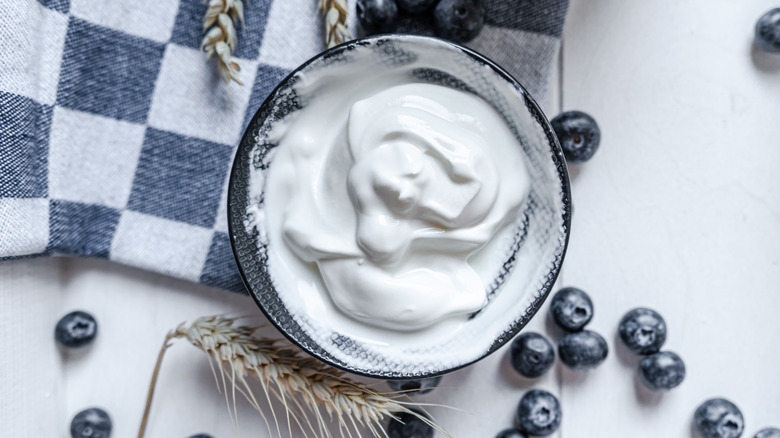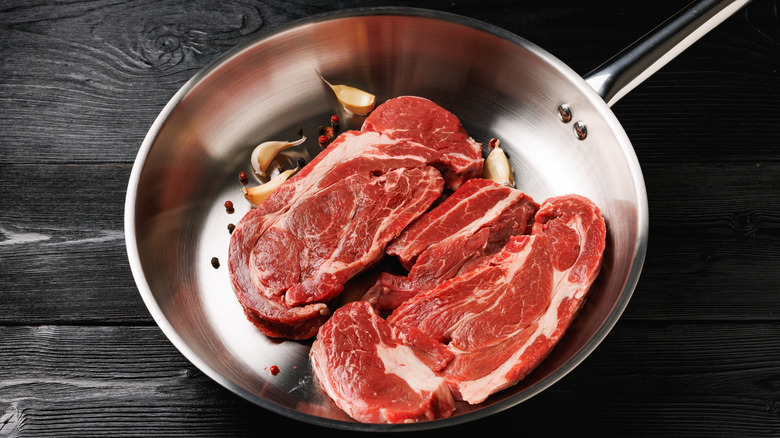Never Break One Cookware Rule When Cooking With Greek Yogurt
Greek yogurt is hailed for its nutritional benefit and malleability with flavors and toppings. Despite its smooth, creamy texture, it's actually a fairly acidic food with a pH level of around 4.3. Due to this, Greek yogurt can have adverse effects on aluminum cookware, and you should avoid this material when cooking with yogurt as much as possible.
As part of its production process, yogurt is fermented for at least four hours, during which the active bacteria produces lactic acid. The longer the food ferments, the lower the final pH level will be. Even compared to other types of yogurts, Greek yogurt is slightly more acidic, and this comes through with its signature lightly tangy taste. The downside of this is that lactic acid can cause aluminum to break down at a faster rate than other foods. Aluminum is a relatively soft metal and, while it's definitely safe to use, acidic food is able to strip away at it. This causes trace amounts of aluminum to enter the food, which may affect its taste. On the upside, yogurt is actually a great way to clean tarnished copper thanks to the potency of its lactic acid.
Using anodized aluminum cookware is ideal as this extra layer mitigates any metal erosion. Aluminum foil trays are convenient to bake with, but you may want to opt for oven-safe glass if your recipe contains Greek yogurt, just to be safe. As far as storage goes, glass is also safer than plastic or aluminum, especially if the food will be stored for a couple of days.
Safe cooking tips for aluminum cookware
The two primary risks of cooking with aluminum pans are the transfer of metal into food and the scratching or general damage done to the cookware. To mitigate both of these concerns, certain foods shouldn't be cooked in this material altogether.
If you are marinating foods, be aware that too much acidity could negatively impact your marinade as well as your aluminum cookware, so it's best to find another material for this task. In general, Health Canada ascertains that only 1 to 2% of the daily aluminum intake of adults comes from aluminum cookware, so you don't need to throw out these pots and pans altogether — just be mindful that harsher foods will increase the risk.
Surprisingly, some leafy greens and basic vegetables are another no-go for this material, namely spinach and potatoes. The reason for this is that these foods naturally contain higher aluminum levels than others, so cooking them for extended periods of time in aluminum cookware only increases these values.
Salt is another damaging food type that can both scratch and leech away at aluminum. Salty foods cause corrosion in the cookware, which, if left untreated for a while, can impact the quality and taste of all foods cooked inside. To wash your cookware, doing so by hand is best as the dishwasher can get too hot for the metal. Warm water, regular dish soap, and non-abrasive brushes and sponges are all you need to clean this type of cookware effectively.


